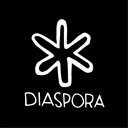Discover the Best HyperSpace Alternatives for Community-Driven Content
HyperSpace offers a unique vision for community-owned spaces, rewarding members for creating and sharing valuable content through a Universal Basic Income (UBI) model powered by AMPs. While its focus on incentivized participation and a decentralized approach is appealing, you might be looking for platforms that offer similar community-driven experiences, diverse features, or different approaches to content monetization and social interaction. This article explores the top HyperSpace alternatives to help you find the perfect fit for your needs.
Top HyperSpace Alternatives
Whether you prioritize free speech, decentralization, robust community features, or diverse content formats, there's an alternative to HyperSpace that aligns with your preferences. Let's delve into some of the leading contenders.

Twitter is a widely popular online social networking service that allows users to send and read short 280-character messages called "tweets." While not directly focused on UBI, it's a strong alternative for real-time content sharing and community engagement. Available on Free, Windows, Web, Android, iPhone, and more, it offers features like Threaded Conversations, Hashtags, and Private messaging, making it excellent for broad reach and quick interactions.

Mastodon
Mastodon is a decentralized microblogging engine, offering a free and open-source alternative to centralized social networks. Its decentralized and federated nature aligns with HyperSpace's community-owned ethos, empowering users with greater control. Available on Free, Open Source, Web, and Self-Hosted platforms, Mastodon boasts features like Content warnings, support for ActivityPub, and a focus on privacy, fostering a more community-driven and ethical social experience.

Diaspora
Diaspora is a federated social networking service emphasizing privacy, making it a compelling HyperSpace alternative for users concerned about data ownership. As a Free, Open Source, Linux, Web, BSD, and Self-Hosted platform, it allows users to share what they want with whom they want. Key features include its Decentralized and Federated structure, Encrypted Connection, and strong Privacy-friendly options, echoing HyperSpace's community control but with a privacy-first approach.

Facebook is a ubiquitous social media platform connecting billions globally. While it doesn't offer a UBI model, its extensive features for communities, events, and content sharing make it a broad HyperSpace alternative for general social interaction. Available for Free on Windows, Web, Android, iPhone, and more, it includes features like Photo Sharing, Integrated Chat, and Events, facilitating vast social networks and group communication.

Minds
Minds is a free and open-source social network that champions free speech and rewards users for their contributions through a point system and tokenization, making it a highly relevant HyperSpace alternative. Available on Freemium, Open Source, Web, Android, and iPhone, it offers features like Decentralized architecture, Encryption, Podcast Hosting, and a focus on Privacy Protected content, aligning with HyperSpace's incentivized and community-driven model.

Gab
Gab is a social network that strongly advocates for free speech and individual liberty, offering a decentralized space for information flow. As a Freemium, Open Source, Web, Android, and Self-Hosted platform, it serves as an alternative for users seeking less censorship and more community control. Its features include Free Speech, Decentralized nature, Live Broadcasting, and Night mode/Dark Theme, appealing to those who value a less restrictive online environment.

GNU social
GNU social is a continuation of the StatusNet project, providing social communication software that is free and open-source. As a Decentralized and Self-Hosted platform, it offers an Ad-free and Free Speech environment, making it a compelling alternative for those who appreciate HyperSpace's community ownership principles without the commercial aspects. It empowers users to host their own social networks, ensuring complete control over their data and interactions.

VK
VK (Vkontakte) is a popular social network, especially in Eastern Europe, known for uniting people and facilitating communication. While not decentralized, its extensive multimedia sharing and community features make it a versatile HyperSpace alternative for social networking. Available for Free on Web, Android, iPhone, and more, VK includes a Music Player, Photo Sharing, and Hosting videos, offering a rich content ecosystem.

Friendica
Friendica is a distributed social network with a strong focus on decentralization, privacy, and interoperability. This Free, Open Source, Linux, BSD, and Self-Hosted platform is an excellent HyperSpace alternative for those seeking robust control over their social experience. Its features include Federated communication, Diaspora integration, Group Messaging, and strong Privacy focused settings, enabling users to connect across different networks while maintaining data privacy.

Steemit
Steemit is a non-censored social platform where users are incentivized to contribute and curate content through a blockchain-based cryptocurrency system, making it a direct HyperSpace alternative for rewarded content creation. Available for Free and Open Source on the Web, Steemit allows users to earn cryptocurrency based on community upvotes. Features include Blockchain-based rewards, Forums, Free Speech, and Messaging, providing a unique model for content monetization and community governance.
Each of these HyperSpace alternatives offers a unique set of features and philosophies, catering to different priorities, from privacy and decentralization to content monetization and broad social connection. Explore these options to find the platform that best aligns with your needs for community engagement and content sharing.